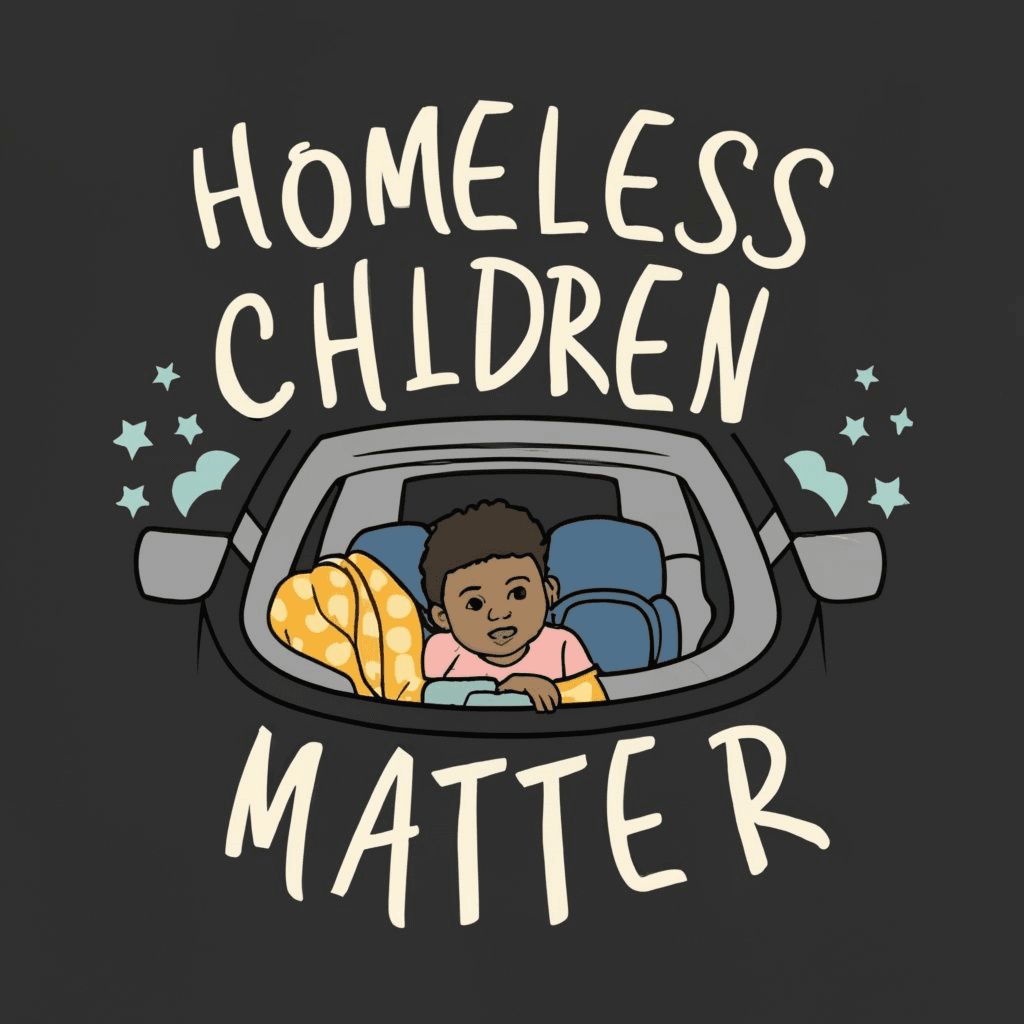Remarkable reforms from 2023 will have a lasting impact.
Remarkable reforms from 2023 will have a lasting impact.
Remarkable reforms from 2023 will have a lasting impact.
Remarkable reforms from 2023 will have a lasting impact.




Image: Looking up at Skyscrapers towering over the viewer rising high into the sky.
Eviction Sealing
Eviction Sealing
Eviction Sealing
Court Records preventing people from having housing can now be sealed.




Image: An opened envelope with a letter that says Junk Mail inside.
Rental Application Fee Ban
Landlords can no longer charge application fees for residential listings.




Image: Old chipping lead pant.
Lead Hazard Mitigation Act
Laws now protect Children from Lead;



Image: Two Bald Eagles sitting side by side.
Image: Two Bald Eagles sitting side by side.
In 2023, so many progressives pushed for, and achieved significant progress.
In 2023, so many progressives pushed for, and achieved significant progress.
In 2023, so many progressives pushed for, and achieved significant progress.
In the lasty session, activists and organizations pushed the General Assembly to do as much as possible to address the housing crisis. In 2024, we need ten times that steam to achieve the goals we have set to address the Housing crisis. Please subscribe, write your legislators, write committees, and testify to show your support for these goals as we campaign for change.
image of Statehouse Hallways
Image: Protestors holding a signs that say Cease Fire Now, End Racism, and Freedom Now.
We are Not Done



Image: Protestors holding a signs that say Cease Fire Now, End Racism, and Freedom Now.
Image: Protestors holding a signs that say Cease Fire Now, End Racism, and Freedom Now.
Image: Protestors holding a signs that say Cease Fire Now, End Racism, and Freedom Now.
We are Not Done
We are Not Done


Deduct Rent for Repairs
Deduct Rent for Repairs
Deduct Rent for Repairs
Deduct Rent for Repairs
The General Assembly in Rhode Island has approved a measure to increase the amount of costs for repairs that a tenant may deduct from rent from $125 to $500 in the aggregate per year. This adjustment is a significant development in tenant-landlord regulations and aims to provide tenants with a higher threshold for deducting repair costs from their rent payments. By raising the limit from $125 to $500, tenants are afforded greater financial flexibility to address necessary repairs and maintenance, ultimately contributing to improved living conditions within rental properties. The adjustment also reflects an acknowledgment of the rising costs associated with property maintenance and repair, offering tenants a more realistic allowance for addressing essential upkeep within their rented accommodations. This legislative change underscores the state's commitment to ensuring fair and equitable housing standards for tenants while balancing the rights and responsibilities of both tenants and landlords within the rental market.
The General Assembly in Rhode Island has approved a measure to increase the amount of costs for repairs that a tenant may deduct from rent from $125 to $500 in the aggregate per year. This adjustment is a significant development in tenant-landlord regulations and aims to provide tenants with a higher threshold for deducting repair costs from their rent payments. By raising the limit from $125 to $500, tenants are afforded greater financial flexibility to address necessary repairs and maintenance, ultimately contributing to improved living conditions within rental properties. The adjustment also reflects an acknowledgment of the rising costs associated with property maintenance and repair, offering tenants a more realistic allowance for addressing essential upkeep within their rented accommodations. This legislative change underscores the state's commitment to ensuring fair and equitable housing standards for tenants while balancing the rights and responsibilities of both tenants and landlords within the rental market.
The General Assembly in Rhode Island has approved a measure to increase the amount of costs for repairs that a tenant may deduct from rent from $125 to $500 in the aggregate per year. This adjustment is a significant development in tenant-landlord regulations and aims to provide tenants with a higher threshold for deducting repair costs from their rent payments. By raising the limit from $125 to $500, tenants are afforded greater financial flexibility to address necessary repairs and maintenance, ultimately contributing to improved living conditions within rental properties. The adjustment also reflects an acknowledgment of the rising costs associated with property maintenance and repair, offering tenants a more realistic allowance for addressing essential upkeep within their rented accommodations. This legislative change underscores the state's commitment to ensuring fair and equitable housing standards for tenants while balancing the rights and responsibilities of both tenants and landlords within the rental market.
Increasing Shelter Capacity
Increasing Shelter Capacity
Increasing Shelter Capacity
Increasing Shelter Capacity
The Rhode Island legislature has approved $45 million from State Fiscal Recovery funds to significantly increase facility capacity for individuals experiencing homelessness, effectively tripling the current level of support. This substantial allocation, when combined with the $250 million approved in the previous year's budget, brings the total to $321.5 million of flexible state American Rescue Plan Act (ARPA) funds dedicated to addressing the housing crisis. The additional funding reflects a strong commitment to tackling homelessness and housing instability in the state. The investment is part of a broader effort to utilize ARPA funds to address affordable housing needs and support vulnerable populations who have been disproportionately affected by the economic and social impacts of the COVID-19 pandemic. The significant financial commitment to expanding facility capacity for individuals experiencing homelessness underscores the state's determination to provide essential support and resources to address the housing crisis and improve the well-being of its residents.
Affprdable Housing Development
Affprdable Housing Development
Affprdable Housing Development
Affprdable Housing Development
In the 2023 Rhode Island budget, $321.5 million of flexible state American Rescue Plan Act (ARPA) funds are dedicated to addressing the housing crisis. This allocation is in addition to the $250 million approved in the previous year's budget, bringing the total to $571.5 million over the two years. The funds are aimed at tackling various aspects of the housing crisis, including increasing facility capacity for individuals experiencing homelessness, supporting housing development, and providing a tax incentive for developers to expand subsidized housing options for low-income households. Additionally, a portion of the funds will be used to target specific housing projects, such as transit-oriented development, and to support the infrastructure necessary for housing development, such as road and utility connections. This significant investment reflects the state's commitment to addressing the pressing challenges related to housing instability and affordability, particularly in the wake of the COVID-19 pandemic. The allocation of these funds underscores the importance of prioritizing housing as a key area for the utilization of ARPA resources, aiming to make a meaningful impact on the housing landscape in Rhode Island
In the 2023 Rhode Island budget, $321.5 million of flexible state American Rescue Plan Act (ARPA) funds are dedicated to addressing the housing crisis. This allocation is in addition to the $250 million approved in the previous year's budget, bringing the total to $571.5 million over the two years. The funds are aimed at tackling various aspects of the housing crisis, including increasing facility capacity for individuals experiencing homelessness, supporting housing development, and providing a tax incentive for developers to expand subsidized housing options for low-income households. Additionally, a portion of the funds will be used to target specific housing projects, such as transit-oriented development, and to support the infrastructure necessary for housing development, such as road and utility connections. This significant investment reflects the state's commitment to addressing the pressing challenges related to housing instability and affordability, particularly in the wake of the COVID-19 pandemic. The allocation of these funds underscores the importance of prioritizing housing as a key area for the utilization of ARPA resources, aiming to make a meaningful impact on the housing landscape in Rhode Island
In the 2023 Rhode Island budget, $321.5 million of flexible state American Rescue Plan Act (ARPA) funds are dedicated to addressing the housing crisis. This allocation is in addition to the $250 million approved in the previous year's budget, bringing the total to $571.5 million over the two years. The funds are aimed at tackling various aspects of the housing crisis, including increasing facility capacity for individuals experiencing homelessness, supporting housing development, and providing a tax incentive for developers to expand subsidized housing options for low-income households. Additionally, a portion of the funds will be used to target specific housing projects, such as transit-oriented development, and to support the infrastructure necessary for housing development, such as road and utility connections. This significant investment reflects the state's commitment to addressing the pressing challenges related to housing instability and affordability, particularly in the wake of the COVID-19 pandemic. The allocation of these funds underscores the importance of prioritizing housing as a key area for the utilization of ARPA resources, aiming to make a meaningful impact on the housing landscape in Rhode Island
Low Income Housing
Tax Credit
Low Income Housing
Tax Credit
Low Income Housing
Tax Credit
Low Income Housing
Tax Credit
The Rhode Island General Assembly approved a Low Income Housing Tax Credit (LIHTC) program as part of the 2023 budget, aiming to provide a tax incentive for developers to expand subsidized housing options for low-income households. This program is designed to encourage the construction and preservation of affordable rental housing by offering a tax credit to developers. The state LIHTC program will complement the federal LIHTC program, which has been a crucial tool in the creation of affordable housing across the United States. With a statewide annual allocation of up to $30 million, the program is expected to have a significant impact on the availability of affordable housing in Rhode Island, furthering the state's efforts to address housing affordability and accessibility for low-income individuals and families.
The Rhode Island General Assembly approved a Low Income Housing Tax Credit (LIHTC) program as part of the 2023 budget, aiming to provide a tax incentive for developers to expand subsidized housing options for low-income households. This program is designed to encourage the construction and preservation of affordable rental housing by offering a tax credit to developers. The state LIHTC program will complement the federal LIHTC program, which has been a crucial tool in the creation of affordable housing across the United States. With a statewide annual allocation of up to $30 million, the program is expected to have a significant impact on the availability of affordable housing in Rhode Island, furthering the state's efforts to address housing affordability and accessibility for low-income individuals and families.
The Rhode Island General Assembly approved a Low Income Housing Tax Credit (LIHTC) program as part of the 2023 budget, aiming to provide a tax incentive for developers to expand subsidized housing options for low-income households. This program is designed to encourage the construction and preservation of affordable rental housing by offering a tax credit to developers. The state LIHTC program will complement the federal LIHTC program, which has been a crucial tool in the creation of affordable housing across the United States. With a statewide annual allocation of up to $30 million, the program is expected to have a significant impact on the availability of affordable housing in Rhode Island, furthering the state's efforts to address housing affordability and accessibility for low-income individuals and families.
Rental Application Fee Ban
Rental Application Fee Ban
Rental Application Fee Ban
Rental Application Fee Ban
The Rhode Island General Assembly voted to outlaw housing rental application fees, a significant move aimed at alleviating the financial burden on prospective tenants. The practice of charging rental application fees has become widespread across the United States rental market, with housing seekers routinely paying substantial amounts for each application, creating barriers to housing access, particularly for low-income individuals and families. The legislation to ban these fees is part of a broader effort to address housing affordability and accessibility. The ban on rental application fees is expected to prevent the accumulation of significant costs for individuals seeking housing, which can be particularly burdensome for those with limited financial resources. This legislative action reflects a commitment to promoting fair and equitable access to housing, and it aligns with efforts at the federal level to address hidden and unfair fees in the rental housing market. The ban on rental application fees is a significant step toward creating a more equitable rental housing market in Rhode Island, aiming to reduce financial barriers and support individuals and families in securing housing without facing excessive and potentially discriminatory costs.
The Rhode Island General Assembly voted to outlaw housing rental application fees, a significant move aimed at alleviating the financial burden on prospective tenants. The practice of charging rental application fees has become widespread across the United States rental market, with housing seekers routinely paying substantial amounts for each application, creating barriers to housing access, particularly for low-income individuals and families. The legislation to ban these fees is part of a broader effort to address housing affordability and accessibility. The ban on rental application fees is expected to prevent the accumulation of significant costs for individuals seeking housing, which can be particularly burdensome for those with limited financial resources. This legislative action reflects a commitment to promoting fair and equitable access to housing, and it aligns with efforts at the federal level to address hidden and unfair fees in the rental housing market. The ban on rental application fees is a significant step toward creating a more equitable rental housing market in Rhode Island, aiming to reduce financial barriers and support individuals and families in securing housing without facing excessive and potentially discriminatory costs.
The Rhode Island General Assembly voted to outlaw housing rental application fees, a significant move aimed at alleviating the financial burden on prospective tenants. The practice of charging rental application fees has become widespread across the United States rental market, with housing seekers routinely paying substantial amounts for each application, creating barriers to housing access, particularly for low-income individuals and families. The legislation to ban these fees is part of a broader effort to address housing affordability and accessibility. The ban on rental application fees is expected to prevent the accumulation of significant costs for individuals seeking housing, which can be particularly burdensome for those with limited financial resources. This legislative action reflects a commitment to promoting fair and equitable access to housing, and it aligns with efforts at the federal level to address hidden and unfair fees in the rental housing market. The ban on rental application fees is a significant step toward creating a more equitable rental housing market in Rhode Island, aiming to reduce financial barriers and support individuals and families in securing housing without facing excessive and potentially discriminatory costs.
The Lead Hazard Mitigation Act
The Lead Hazard Mitigation Act
The Lead Hazard Mitigation Act
The Lead Hazard Mitigation Act
The Rhode Island General Assembly has taken significant steps to reduce childhood lead poisoning by passing a package of four bills aimed at ensuring landlords' compliance with lead-safety laws. This legislative action, which has now become law, is a crucial component of the state's efforts to combat lead poisoning and its detrimental effects on children. The bills are designed to hold landlords accountable for maintaining lead-safe properties and to protect tenants, particularly families with young children, from the hazards of lead exposure. By requiring the inspection and removal of conditions conducive to lead poisoning prior to renting residential properties, the legislation seeks to proactively address this public health issue. The passage of these bills reflects a comprehensive approach to tackling childhood lead poisoning in Rhode Island and underscores the General Assembly's commitment to creating safer and healthier living environments for the state's youth.
The Rhode Island General Assembly has taken significant steps to reduce childhood lead poisoning by passing a package of four bills aimed at ensuring landlords' compliance with lead-safety laws. This legislative action, which has now become law, is a crucial component of the state's efforts to combat lead poisoning and its detrimental effects on children. The bills are designed to hold landlords accountable for maintaining lead-safe properties and to protect tenants, particularly families with young children, from the hazards of lead exposure. By requiring the inspection and removal of conditions conducive to lead poisoning prior to renting residential properties, the legislation seeks to proactively address this public health issue. The passage of these bills reflects a comprehensive approach to tackling childhood lead poisoning in Rhode Island and underscores the General Assembly's commitment to creating safer and healthier living environments for the state's youth.
The Rhode Island General Assembly has taken significant steps to reduce childhood lead poisoning by passing a package of four bills aimed at ensuring landlords' compliance with lead-safety laws. This legislative action, which has now become law, is a crucial component of the state's efforts to combat lead poisoning and its detrimental effects on children. The bills are designed to hold landlords accountable for maintaining lead-safe properties and to protect tenants, particularly families with young children, from the hazards of lead exposure. By requiring the inspection and removal of conditions conducive to lead poisoning prior to renting residential properties, the legislation seeks to proactively address this public health issue. The passage of these bills reflects a comprehensive approach to tackling childhood lead poisoning in Rhode Island and underscores the General Assembly's commitment to creating safer and healthier living environments for the state's youth.
Deduct Rent for Repairs
Deduct Rent for Repairs
Deduct Rent for Repairs
Deduct Rent for Repairs
The General Assembly in Rhode Island has approved a measure to increase the amount of costs for repairs that a tenant may deduct from rent from $125 to $500 in the aggregate per year. This adjustment is a significant development in tenant-landlord regulations and aims to provide tenants with a higher threshold for deducting repair costs from their rent payments. By raising the limit from $125 to $500, tenants are afforded greater financial flexibility to address necessary repairs and maintenance, ultimately contributing to improved living conditions within rental properties. The adjustment also reflects an acknowledgment of the rising costs associated with property maintenance and repair, offering tenants a more realistic allowance for addressing essential upkeep within their rented accommodations. This legislative change underscores the state's commitment to ensuring fair and equitable housing standards for tenants while balancing the rights and responsibilities of both tenants and landlords within the rental market.
The General Assembly in Rhode Island has approved a measure to increase the amount of costs for repairs that a tenant may deduct from rent from $125 to $500 in the aggregate per year. This adjustment is a significant development in tenant-landlord regulations and aims to provide tenants with a higher threshold for deducting repair costs from their rent payments. By raising the limit from $125 to $500, tenants are afforded greater financial flexibility to address necessary repairs and maintenance, ultimately contributing to improved living conditions within rental properties. The adjustment also reflects an acknowledgment of the rising costs associated with property maintenance and repair, offering tenants a more realistic allowance for addressing essential upkeep within their rented accommodations. This legislative change underscores the state's commitment to ensuring fair and equitable housing standards for tenants while balancing the rights and responsibilities of both tenants and landlords within the rental market.
The General Assembly in Rhode Island has approved a measure to increase the amount of costs for repairs that a tenant may deduct from rent from $125 to $500 in the aggregate per year. This adjustment is a significant development in tenant-landlord regulations and aims to provide tenants with a higher threshold for deducting repair costs from their rent payments. By raising the limit from $125 to $500, tenants are afforded greater financial flexibility to address necessary repairs and maintenance, ultimately contributing to improved living conditions within rental properties. The adjustment also reflects an acknowledgment of the rising costs associated with property maintenance and repair, offering tenants a more realistic allowance for addressing essential upkeep within their rented accommodations. This legislative change underscores the state's commitment to ensuring fair and equitable housing standards for tenants while balancing the rights and responsibilities of both tenants and landlords within the rental market.
Protecting Victims from Abusive Litigation
Protecting Victims from Abusive Litigation
Protecting Victims from Abusive Litigation
Protecting Victims from Abusive Litigation
The General Assembly passed a bill to protect domestic violence victims from abusive litigation filed by abusers, marking a significant advancement in safeguarding the rights and safety of individuals affected by domestic violence. This legislation is a crucial step in preventing abusers from using the legal system to harass or intimidate their victims, providing much-needed legal protections for those who have experienced domestic violence. By creating measures to shield victims from abusive litigation, the General Assembly has demonstrated a commitment to addressing the complex challenges faced by individuals affected by domestic violence and ensuring that the legal system serves as a tool for protection and justice for survivors.
The General Assembly passed a bill to protect domestic violence victims from abusive litigation filed by abusers, marking a significant advancement in safeguarding the rights and safety of individuals affected by domestic violence. This legislation is a crucial step in preventing abusers from using the legal system to harass or intimidate their victims, providing much-needed legal protections for those who have experienced domestic violence. By creating measures to shield victims from abusive litigation, the General Assembly has demonstrated a commitment to addressing the complex challenges faced by individuals affected by domestic violence and ensuring that the legal system serves as a tool for protection and justice for survivors.
The General Assembly passed a bill to protect domestic violence victims from abusive litigation filed by abusers, marking a significant advancement in safeguarding the rights and safety of individuals affected by domestic violence. This legislation is a crucial step in preventing abusers from using the legal system to harass or intimidate their victims, providing much-needed legal protections for those who have experienced domestic violence. By creating measures to shield victims from abusive litigation, the General Assembly has demonstrated a commitment to addressing the complex challenges faced by individuals affected by domestic violence and ensuring that the legal system serves as a tool for protection and justice for survivors.
A Cold Case Unit for Rhode Island
A Cold Case Unit for Rhode Island
A Cold Case Unit for Rhode Island
A Cold Case Unit for Rhode Island
The 2023 Rhode Island budget includes full funding for a new cold case unit in the Attorney General's office, representing a significant commitment to addressing unsolved cases. The allocation of $2 million for this purpose underscores the state's dedication to pursuing justice for victims and their families. The funding will support the establishment of the cold case unit, allowing for the investigation and review of unsolved cases, including those with indigenous communities. Additionally, the Attorney General's office secured a substantial $1.5 million grant from the Emmett Till Cold Case Investigations and Prosecution federal grant, further bolstering resources for cold case initiatives. This investment reflects a proactive approach to addressing unresolved cases and demonstrates the state's commitment to pursuing justice and closure for affected communities. Attorney General Peter Neronha's advocacy for the cold case unit and the securing of additional grant funding highlight the prioritization of addressing unsolved cases and supporting investigative efforts to bring resolution to long-standing mysteries.
The 2023 Rhode Island budget includes full funding for a new cold case unit in the Attorney General's office, representing a significant commitment to addressing unsolved cases. The allocation of $2 million for this purpose underscores the state's dedication to pursuing justice for victims and their families. The funding will support the establishment of the cold case unit, allowing for the investigation and review of unsolved cases, including those with indigenous communities. Additionally, the Attorney General's office secured a substantial $1.5 million grant from the Emmett Till Cold Case Investigations and Prosecution federal grant, further bolstering resources for cold case initiatives. This investment reflects a proactive approach to addressing unresolved cases and demonstrates the state's commitment to pursuing justice and closure for affected communities. Attorney General Peter Neronha's advocacy for the cold case unit and the securing of additional grant funding highlight the prioritization of addressing unsolved cases and supporting investigative efforts to bring resolution to long-standing mysteries.
The 2023 Rhode Island budget includes full funding for a new cold case unit in the Attorney General's office, representing a significant commitment to addressing unsolved cases. The allocation of $2 million for this purpose underscores the state's dedication to pursuing justice for victims and their families. The funding will support the establishment of the cold case unit, allowing for the investigation and review of unsolved cases, including those with indigenous communities. Additionally, the Attorney General's office secured a substantial $1.5 million grant from the Emmett Till Cold Case Investigations and Prosecution federal grant, further bolstering resources for cold case initiatives. This investment reflects a proactive approach to addressing unresolved cases and demonstrates the state's commitment to pursuing justice and closure for affected communities. Attorney General Peter Neronha's advocacy for the cold case unit and the securing of additional grant funding highlight the prioritization of addressing unsolved cases and supporting investigative efforts to bring resolution to long-standing mysteries.
Juneteenth is now a State Holliday
Juneteenth is now a State Holliday
Juneteenth is now a State Holliday
Juneteenth is now a State Holliday
Governor Dan McKee signed legislation to establish Juneteenth National Freedom Day as an official state holiday in Rhode Island beginning in 2024. The bill, sponsored by Representative Brianna E. Henries and Senator Tiara Mack, was signed into law on June 19, 2023, and was supported by community leaders from across the state. The establishment of Juneteenth as a state holiday is a significant recognition of the injustices of slavery and the progress made towards creating a more equal and just world. Juneteenth, which commemorates the emancipation of enslaved African Americans, is a day of celebration, memorialization, and commemoration. By making Juneteenth a state holiday, Rhode Island aims to unite in joy and uplift the diverse and rich culture while solemnly recognizing the struggles, triumphs, and accomplishments of Black Americans. This legislative action reflects the state's commitment to acknowledging the systemic injustices that have persisted for centuries and educating Rhode Islanders about this important chapter in American history.
Governor Dan McKee signed legislation to establish Juneteenth National Freedom Day as an official state holiday in Rhode Island beginning in 2024. The bill, sponsored by Representative Brianna E. Henries and Senator Tiara Mack, was signed into law on June 19, 2023, and was supported by community leaders from across the state. The establishment of Juneteenth as a state holiday is a significant recognition of the injustices of slavery and the progress made towards creating a more equal and just world. Juneteenth, which commemorates the emancipation of enslaved African Americans, is a day of celebration, memorialization, and commemoration. By making Juneteenth a state holiday, Rhode Island aims to unite in joy and uplift the diverse and rich culture while solemnly recognizing the struggles, triumphs, and accomplishments of Black Americans. This legislative action reflects the state's commitment to acknowledging the systemic injustices that have persisted for centuries and educating Rhode Islanders about this important chapter in American history.
Governor Dan McKee signed legislation to establish Juneteenth National Freedom Day as an official state holiday in Rhode Island beginning in 2024. The bill, sponsored by Representative Brianna E. Henries and Senator Tiara Mack, was signed into law on June 19, 2023, and was supported by community leaders from across the state. The establishment of Juneteenth as a state holiday is a significant recognition of the injustices of slavery and the progress made towards creating a more equal and just world. Juneteenth, which commemorates the emancipation of enslaved African Americans, is a day of celebration, memorialization, and commemoration. By making Juneteenth a state holiday, Rhode Island aims to unite in joy and uplift the diverse and rich culture while solemnly recognizing the struggles, triumphs, and accomplishments of Black Americans. This legislative action reflects the state's commitment to acknowledging the systemic injustices that have persisted for centuries and educating Rhode Islanders about this important chapter in American history.
Special thanks to the legislators, activists, and organizations that made these victories possible.
Special thanks to the legislators, activists, and organizations that made these victories possible.
Click here to read the official newsletter from the 2023 Session.



Image: Two Bald Eagles sitting side by side.
We're Not Done
We're Not Done
We're Not Done
In the lasty session, activists and organizations pushed the General Assembly to do as much as possible to address the housing crisis. In 2024, we need ten times that steam to achieve the goals we have set to address the Housing crisis. Please subscribe, write your legislators, write committees, and testify to show your support for these goals as we campaign for change.
image of Statehouse Hallways



Image: A runner carrying a large stack of papers.
Let's keep the momentum going.
Let's keep the momentum going.
Let's keep the momentum going.
Tremendous Triumph
Following through and delivering eventually results in knowing that what we did is helping, will help, and has helped allot of people. You can help make a difference in Rhode Island and we can continue to achieve progress.




Click here to read the official newsletter from the 2023 Session.
Special thanks to the legislators, activists, and organizations that made these victories possible.

Image: A runner carrying a large stack of papers.
Let's keep the momentum going.
We're Not Done
In the last session, activists and organizations pushed the General Assembly to do as much as possible to address the housing crisis. In 2024, we need ten times that steam to achieve the goals we have set to address the Housing crisis. Please subscribe, write your legislators, write committees, and testify to show your support for these goals as we campaign for change.
image of Statehouse Hallways

Image: Two Bald Eagles sitting side by side.
Image: Two Bald Eagles sitting side by side.
Tremendous Triumph
Following through and delivering eventually results in knowing that what we did is helping, will help, and has helped allot of people. You can help make a difference in Rhode Island and we can continue to achieve progress.

